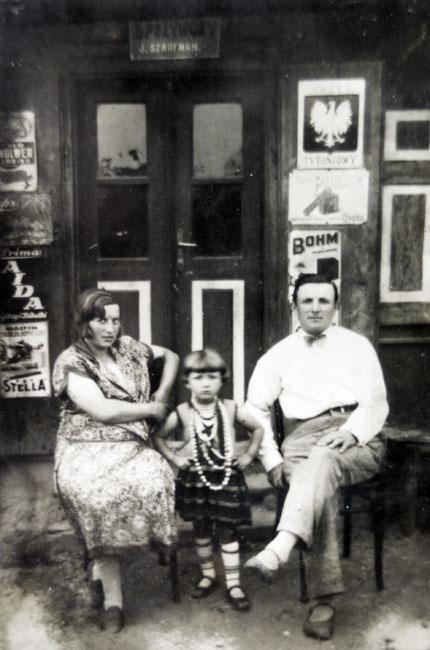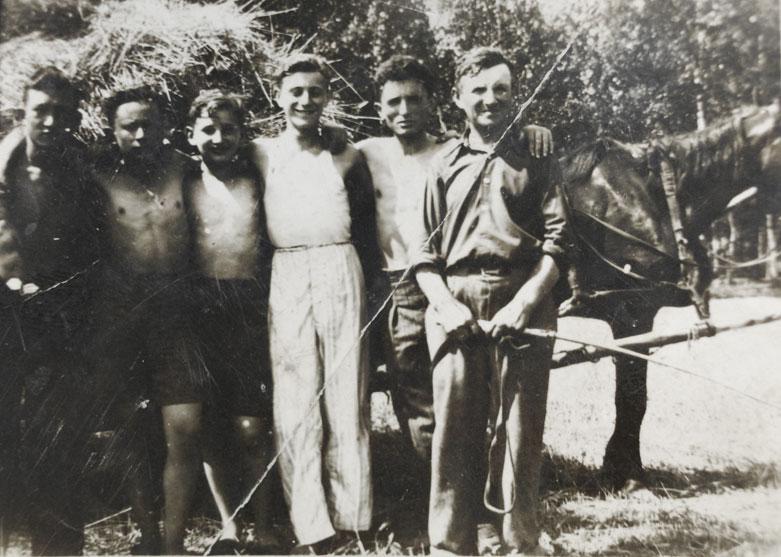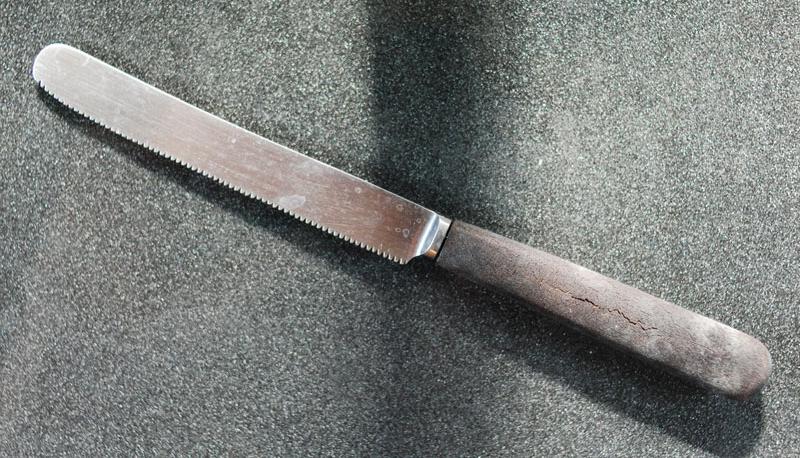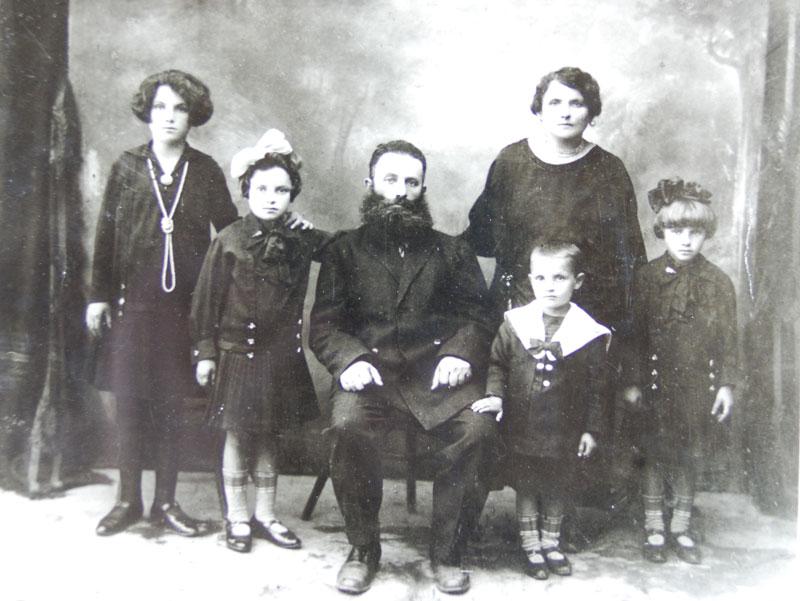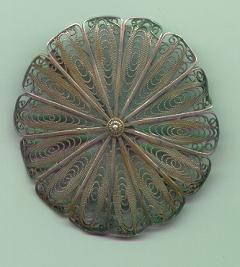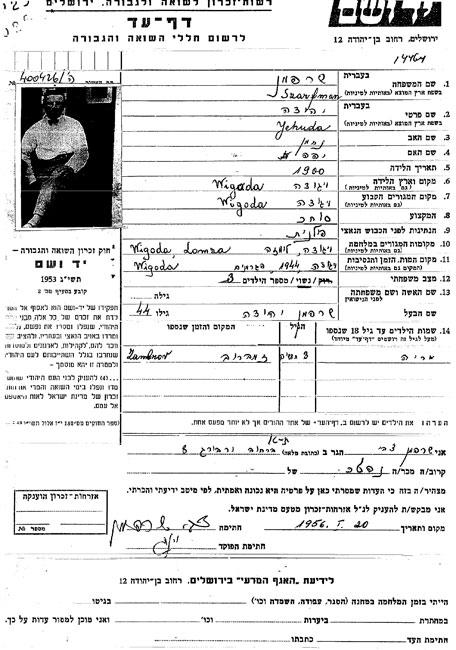Hanna was born in 1925 in Wygoda, in the Bialystok region of Poland, to Yudke (Yehuda) and Tzila (née Shumovich) Sharfman. Thanks to its beautiful clear air, Wygoda (comfort in Polish), was a well-known summer resort. Yehuda earned a living in trade and the family lived comfortably.
In 1936 Hanna's paternal grandparents, Nachman and Yafa Sharfman, immigrated to Eretz Israel (Mandatory Palestine) together with their youngest children Malka and Haim. Her grandfather Nachman returned to Poland in 1939 to wind up his affairs but was unable to return to Eretz Israel due to the outbreak of the war.
A few months after the outbreak of war in September 1939, control of the area passed to the Russians. This was a period of relative quiet for the Jews. The calm ended with the German invasion in June 1941, after which fear pervaded the atmosphere on the street. The Aktions in Wygoda began at the end of 1941.
Whenever there was an Aktion in the town, Hanna's parents would flee with her and her younger brother Zvi - together with her uncle Isaac (Tzila's brother), his wife Bracha Shumovich, their young daughter Hayah and grandfather Nachman - to the Czerwony Bór (the Red Forest) about a kilometer from their home. The maternal grandparents, Rivka Lea and Samuel Wolf Shumovich, who were too old to flee, stayed at home with Arieh, Hanna's baby brother. After every Aktion the grandmother Rivka Lea would hang a large white sheet on the back wall of their cowshed that faced towards the forest, thus signaling that the danger had passed and that they could safely return to the village.
In November 1942 the ghetto in Łomża, the nearest large city, was liquidated. The family heard about a forthcoming Aktion and fled to the forest, but this time no white sheet was hung after the Aktion.
"It was only the day before that we had taken leave of our parents, agreeing with Mother that if a return to town was feasible she would, as in the past, hang out the white sheet. I had not slept a wink all night. Early in the morning, before it was completely light, I went with one of the Stupnick brothers to pick out a high tree at the entrance of the forest, from which we could gain a good view of the town and in particular my father's house. We climbed a tree and turned our gaze towards the town. No white sheet, not then and not when we looked later, but what we did see shook us to the core."
Rivka and Israel Teyer "The Red Forest, As Narrated by Izhak Shumowitz " Docostory Ltd p93.
From that moment, and for the next twenty-two months, the family lived in hiding. Their concealment in a hostile area was enabled through the dedication of Mieczyslaw Gosk and Tyszka – two Polish farmers, business contacts of Hanna’s father from before the war. They hid in Gosk's granary all winter and he supplied them with food. When his relatives in the village began to voice suspicions about his behavior, they were forced to flee, and hid in a bunker that he dug for them in the forest.
The family hid money and valuables in a barrel which they buried in the ground. At night Hanna, her father and her uncle Isaac would remove items from the barrel and give them to Gosk, and he would use them to buy food for them to eat in hiding.
Some time later, the secret of the bunker was revealed and they fled, this time to hide in Gosk's field. For six weeks they slept in the open air and then they moved to hide in a flour mill. When they were discovered, the uncle's family returned to live with Gosk's family; Hanna's family, together with other Jews, hid in a bunker under a pigsty in a nearby village. They lived beneath the pigsty for nine months. As the Russians approached, the Germans planned to burn down the village. The farm-owner warned the Jews hiding in the bunker and they escaped towards the forest. During the escape, Hanna’s father Yudke was caught by German soldiers and shot dead, one day before the liberation.
At the end of the war, the family returned to their original hiding place and dug up the barrel containing their belongings.
Hanna left Poland immediately after the war through the Youth Aliyah program. The long journey to Eretz Israel, which took over a year, took her through Italy, where she met Shimon Kalvaria. The two married and immigrated to Eretz Israel together. The Gosk family was recognized as Righteous Among the Nations by Yad Vashem.
Hanna donated two items to Yad Vashem; an apron that her grandmother Rivka Lea Shumovich – Tzila's mother – had used before the war, and a serrated kitchen knife that had been given to the family by a visitor to their guest house in Wygoda in 1938. The two objects, together with photographs of the family and other items, were hidden in the barrel and retrieved at the end of the war.
